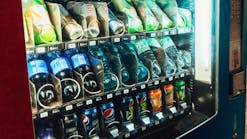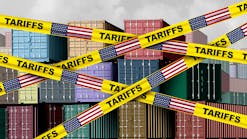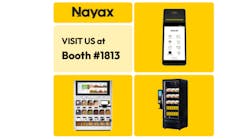Mergers and acquisitions in the convenience services space have become more complex, so buyers and sellers must pay closer attention to their positions. In 2020, amid the coronavirus outbreak and disruption, business broker Mike Kelner of VBB Advisors recommended that operators not sell but instead focus on strengthening their companies to add value.
While most M&A activity in the vending, micro market and OCS segments came to standstill last year, transactions picked up in 2021. But COVID-19 continues to have significant effects on vending, micro market and office coffee operations. To that end, VendingMarketWatch.com asked Kelner, who recently earned the designation of Certified Merger and Acquisition Professional, what operators need to know if they’re thinking of selling or buying a business in 2022.
To what extent do buyers look at sellers’ financials before the start of the pandemic (let’s call the start March 11, 2020)? Or is that information irrelevant now?
Before answering this question, it is important to keep in mind that there are essentially two types of buyers. Strategic buyers are companies that are already involved in the industry. Financial buyers may be individuals entering the industry or private equity groups.
That said, strategic buyers are somewhat less focused on the financials as they bring their own economics and synergies to the deal. Financial buyers are very focused on the financials in order to determine their ability to reach a return-on-investment goal.
The information continues to be relevant today. However, buyers are laser focused on the gross sales. Their concern is to what extent and when will the sales rebound.
What is your estimate of the number of operations that were unable to be sold in 2020 because of the pandemic?
That’s difficult to say. I do know a number of operators that were planning on selling and decided to wait. Additionally, I was personally involved in three transactions that were tabled as a result of the pandemic.
What are the most valuable, sought-after assets acquirers are looking for today? How does that compare to pre-pandemic?
Buyers are for the most part looking for the same things as pre-pandemic, profitable, well-run companies in desirable market with opportunities for growth.
What’s in higher demand for buyers: a turnkey operation that can be folded into an existing [the buyer’s] operation or a standalone platform with building and fleet that gives the buyer a base in a new market?
That’s a function of the buyers. Strategic buyers tend to value fold-in acquisitions as these are the most accretive to their bottom line. Private equity groups generally prefer platform acquisitions that can be scaled with future fold-in deals.
Which type of operation or industry segment (vending, micro market, OCS -- or blend of any) is most prized by buyers?
Micro markets have been most prized and valuable over the past few years. I see that continuing as unattended retail becomes more prevalent.
For those owners who were unable to sell in 2020 and 2021, what changes and enhancements should they make to attract buyers? This is a three-part question for each sector: (1) vending, (2) micro markets and (3) OCS.
I’ll address this in general and then we can dive into each segment.
Generally, regardless of sector, buyers are seeking strong recurring revenues with consistent gross margins coupled with growth opportunities.
In the vending channel it is important that operators are up to date with their technology. This eases the acquisition process for the buyer and is indicative of a well-run business. Customer contracts while often eschewed by operators are important to buyers.
The micro market operator needs to deliver strong, consistent gross margins. The variables of fresh food waste and shrinkage need to be managed and tracked. Again, contracts provide a buyer with an element of security regarding the ongoing business.
OCS faces other and perhaps more daunting challenges. A buyer needs to demonstrate a plan for recovering sales. The business needs to be scaled to the new levels of on-site employment.
Are there current pandemic-influenced government policies that could benefit buyers or sellers, or both?
The most important government policy is to continue promoting vaccinations. Our industry needs people working onsite.
The U.S. economy is expected to grow at a historic rate. GDP grew 6.4% in this year’s first quarter. But will an economic boom help the industry’s recovery? The industry’s health has always been linked to employment -- onsite. But that no longer applies since a large part of the workforce can be productive working remotely from home. What do you is going happen regarding our recovery?
It's important to remember that the historic growth rate is based on a pandemic depressed level. Obviously, any economic recovery is beneficial to our industry. That said, I doubt industry recovery will parallel the economy. The employees that are no longer coming into the office are lost revenue that may not come back. As a result, the industry recovery will lag the national economy. Unfortunately for business owners a great deal of enterprise value has been lost.
If operators have their own questions not covered here, where can they reach you?
I'd be happy to answer any questions. I can be reached at (704) 942-4621 or [email protected].

Nick Montano
Contributing editor Nick Montano is passionate about covering news in the vending, office coffee service and micro market industry. He brings more than two decades’ experience to AM and VMW as a business journalist. His industry roots go way back; his first jobs were managing the stockroom of a full-line vending company and filling in for vacationing route drivers during his high school summer breaks.








